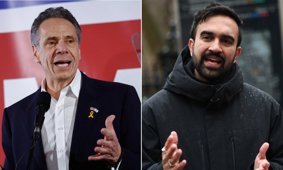
50,000 Germans Exempt from Broadcast Fee in October
From October onward, many BAföG-receiving students will no longer be liable for Germany’s mandatory broadcast fee.
Beginning October 2025, an estimated 50,000 Germans will no longer be required to pay the mandatory broadcasting license fee — the monthly charge funding public TV and radio services. The reform specifically targets students receiving BAföG and certain other groups, and could reshape public broadcasting financing and public debates over media funding in Germany.
Here’s a detailed look at who is exempt, how to apply, potential legal challenges, and what this means for the future of public broadcasting in Germany.
The License Fee: What It Is and Why Change Now?
Mandatory fee, regardless of use
Since 2013, nearly every household in Germany must pay a flat €18.36 per month (or €55.08 quarterly) to fund public broadcasters ARD, ZDF, and Deutschlandradio — regardless of whether residents use their services.
This method, regarded as a solidarity financing system, has long drawn criticism. Critics say it burdens the economically vulnerable and people who don’t consume public media. Supporters argue it remains vital for independent, noncommercial media funding.
Why reform exemption now?
The revision is timed with the upcoming Winter Semester 2025/26, when student enrollment increases and the number of BAföG recipients becomes more significant. Media and expat sources report that from October 2025, students receiving BAföG and living independently of their parents will join the exemption list.
In addition, a lawsuit before Germany’s Federal Administrative Court is challenging whether all license-fee payers must continue paying even when public broadcasters allegedly fail their diversity obligations. A ruling could affect more than just student exemptions.
Who Qualifies for Exemption: Primarily Students, Plus Others
BAföG Students Now Eligible
The new core exemption applies to students who receive BAföG and do not live with their parents. Since BAföG is means-tested and tied to financial need, it is considered a reasonable criterion for relief.
If a shared apartment is occupied entirely by BAföG recipients, none will need to pay the license fee. Similarly, student dormitories with rooms off a common hallway may qualify, provided all residents meet the exemption criteria.
Critically, this exemption is retroactive for up to three years — students who qualified under BAföG during the past 36 months can seek reimbursement for previously paid fees.
Other Groups Already or Potentially Exempt
Beyond BAföG students, some groups are already or remain eligible for exemption or reduction:
- Recipients of social benefits (e.g. unemployment support, basic social assistance)
- Individuals with certified disabilities or sensory impairments
- Asylum seekers under specified assistance programs
- Secondary residences (only one dwelling per household is charged)
These rules carry complexity and depend heavily on proof of status and legal interpretation.
How Many May Benefit? Estimates & Risks
Estimating the Impact
Recent data show first semester enrollments around 400,000 in Germany. Assuming 11–13% of students receive BAföG (based on ~635,600 BAföG recipients) suggests around 44,000 to 52,000 new students may be eligible.
Due to living situations and existing exemptions, actual uptake could be lower. Still, the figure of 50,000 aligns with public reporting.
Budgetary & Institutional Risk
Public broadcasters may face strain if paying households drop sharply. While this change is targeted and gradual, extended exemptions or adverse court rulings could threaten the financing model.
The legal challenge could force broader reimbursements, affecting finances, stakeholder trust, and system stability.
How to Apply for the Exemption
- Submit online applicationz via the ARD / ZDF / Deutschlandradio contribution service portal
- Provide proof of BAföG status, residence, and supporting documents
- Request retroactive exemption up to three years (if eligible)
- In shared apartments, all residents must qualify for a full exemption; otherwise one person is responsible
- Save all correspondence, confirmation codes, and receipts
Policy documents stress that student exemptions only apply if explicit conditions are met; hardship exceptions are rare.
Legal Challenge & Broader Implications
The pending case at the Federal Administrative Court questions whether all citizens must pay the license fee even when public broadcasters allegedly breach their diversity mandate. A favorable ruling may demand sweeping reforms or refunds.
If sections of the fee are found unconstitutional, the entire funding structure may need rethinking — affecting broadcasters, states, and citizens alike.
Do all BAföG recipients qualify?
No — BAföG plus independent living (not with parents) are required.
Can I apply retroactively?
Yes — up to three years if you met the criteria then.
Is exemption automatic?
No — you must apply with supporting documents.
What about shared flats?
Only if all residents meet exemption criteria. Otherwise one pays.
Will broadcasters lose revenue?
Early impact is limited; but legal and broadening changes may amplify pressure.
Could court rulings reform the system?
Yes — structural decisions may require refunds or overhaul.
What This Means for Public Broadcasting
This reform introduces a new class of exemption (BAföG recipients) to the public broadcasting funding model. It lightens the burden on financially vulnerable students, yet tests the sustainability of a license-fee system.
Broadcasters must safeguard editorial independence while adapting to revenue changes. More broadly, this debate underscores questions of legitimacy, fairness, and the future of public service media in a digital era.
Source: Rundfunkbeitrag Focus The Local Germany Onboard Germany How-to-Germany.com






